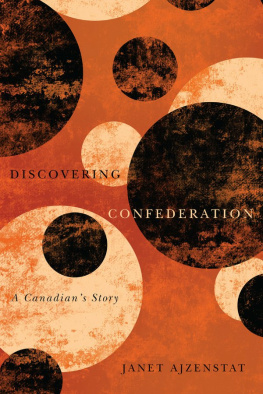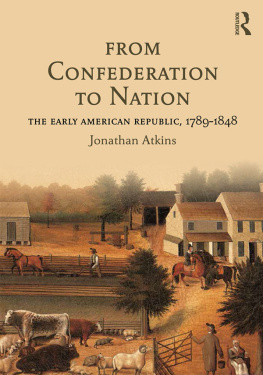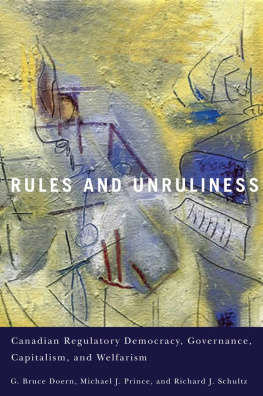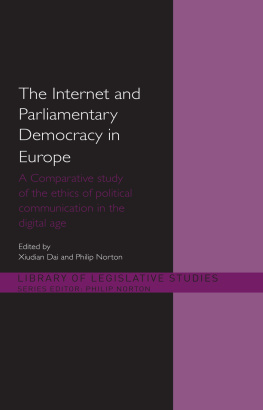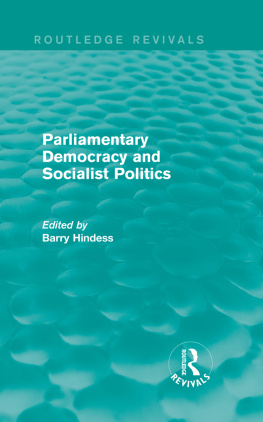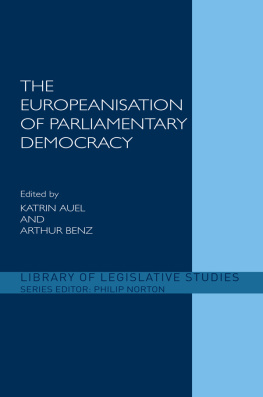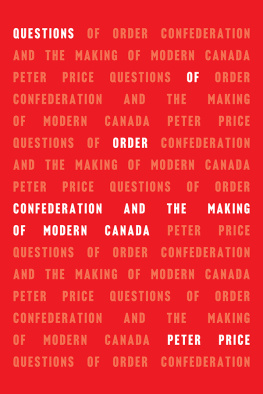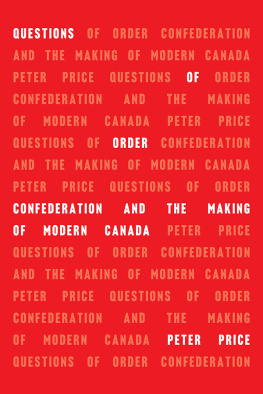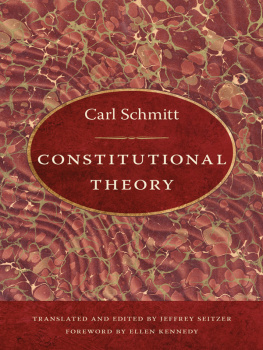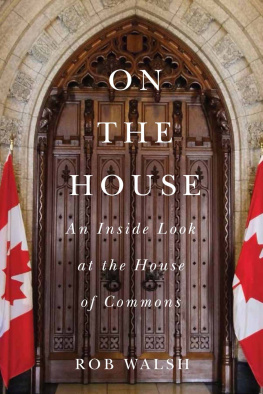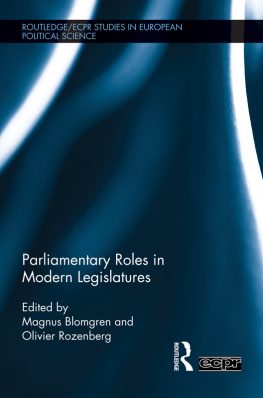Footprints Series
JANE ERRINGTON, Editor
The life stories of individual women and men who were participants in interesting events help nuance larger historical narratives, at times reinforcing those narratives, at other times contradicting them. The Footprints series introduces extraordinary Canadians, past and present, who have led fascinating and important lives at home and throughout the world.
The series includes primarily original manuscripts but may consider the English-language translation of works that have already appeared in another language. The editor of the series welcomes inquiries from authors. If you are in the process of completing a manuscript that you think might fit into the series, please contact her, care of McGill-Queens University Press, 1010 Sherbrooke Street West, Suite 1720, Montreal, QC H3A 2R7.
Blatant Injustice
The Story of a Jewish Refugee from Nazi Germany Imprisoned in Britain and Canada during World War II
Walter W. Igersheimer Edited and with a foreword by Ian Darragh
Against the Current Memoirs
Boris Ragula
Margaret Macdonald
Imperial Daughter
Susan Mann
My Life at the Bar and Beyond
Alex K. Paterson
Red Travellers
Jeanne Corbin and Her Comrades
Andre Lvesque
The Teeth of Time
Remembering Pierre Elliott Trudeau
Ramsay Cook
The Greater Glory
Thirty-seven Years with the Jesuits
Stephen Casey
Doctor to the North
Thirty Years Treating Heart Disease among the Inuit
John H. Burgess
Dal and Rice
Wendy M. Davis
In the Eye of the Wind
A Travel Memoir of Prewar Japan
Ron Baenninger and Martin Baenninger
Im from Bouctouche,
Me Roots Matter
Donald J. Savoie
Alice Street
A Memoir
Richard Valeriote
Crises and Compassion
From Russia to the Golden Gate
John M. Letiche
In the Eye of the China Storm
A Life Between East and West
Paul T.K. Lin with Eileen Chen Lin
Georges and Pauline Vanier
Portrait of a Couple
Mary Frances Coady
Blitzkrieg and Jitterbugs
College Life in Wartime, 19391942
Elizabeth Hillman Waterston
Harrison McCain
Single-Minded Purpose
Donald J. Savoie
Discovering Confederation
A Canadians Story
Janet Ajzenstat
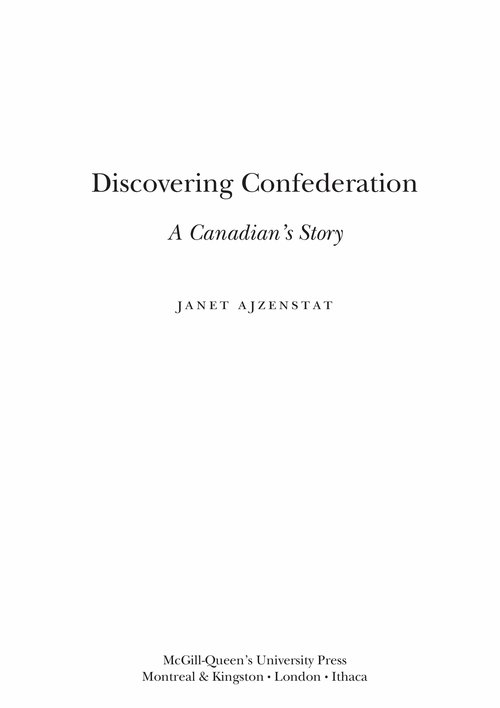
McGill-Queens University Press 2014
ISBN 978-0-7735-4323-2 (cloth)
ISBN 978-0-7735-4324-9 (paper)
ISBN 978-0-7735-9025-0 (ePDF)
ISBN 978-0-7735-9026-7 (ePUB)
Legal deposit second quarter 2014
Bibliothque nationale du Qubec
Printed in Canada on acid-free paper that is 100 % ancient forest free (100 % post-consumer recycled), processed chlorine free
McGill-Queens University Press acknowledges the support of the Canada Council for the Arts for our publishing program. We also acknowledge the financial support of the Government of Canada through the Canada Book Fund for our publishing activities.
Library and Archives Canada Cataloguing in Publication
Ajzenstat, Janet, 1936, author
Discovering Confederation: a Canadians story / Janet Ajzenstat.
(Footprints series; 18)
Includes bibliographical references and index.
Issued in print and electronic formats.
ISBN 978-0-7735-4323-2 (bound). ISBN 978-0-7735-4324-9 (pbk.).
ISBN 978-0-7735-9025-0 (ePDF). ISBN 978-0-7735-9026-7 (ePUB)
1. Ajzenstat, Janet, 1936. 2. Political scientists Canada Biography. 3. Intellectuals Canada Biography. 4. Political science Canada History. 5. Canada History Confederation, 1867. 6. Canada Politics and government. I. Title. II. Series: Footprints series; 18
JC253. A49A3 2014 320.092 C2013-908516-5
C2013-908517-3
This book was typeset by Interscript.
Preface
And what do you do? The question is the usual polite one at a social gathering. How should I respond? I write books on the history of Canadian constitutional law. As a conversation opener the admission is a non-starter. The response is usually, how interesting, followed by a change of subject.
Constitutional law is boring; that is received opinion in this country. The history of constitutional law is even less attractive. An argument for abolishing the Senate may receive attention; an argument for revising the electoral system is tolerable. But the history of law?
Are you talking about the British North America Act? My interlocutor is doing her best. But it is a struggle. When it becomes evident that I am proposing a discussion of the Canadian constitutions strengths, she suggests a trip to the wine bar.
Discovering Confederation is an intellectual autobiography. It tells the story of a woman who stumbled into the field of law. She was originally enamoured of the progressive politics of the 1960s and hoped to establish a career as a radical activist; in those days she believed that the good in politics can be determined once and for all and should be resolutely grasped and promulgated. In the 1960s she entered the political science program at McMaster University in Hamilton, Ontario, completing her undergraduate and Master of Arts In 1979, she returned to McMaster as a part-time night-time instructor in Canadian politics and, after some years, won a tenure-track appointment. At the core of this book lies her discovery of the argument for parliamentary democracy in the debates on Confederation in the British North American parliaments and her dawning appreciation of parliamentary democracy as sufficient security for political freedom and individual rights.
The book concludes with a sketch of todays mature woman, todays aging woman, a retired professor of political science. She is sometimes referred to as a conservative but should by rights be regarded as a defender of the political constitution that ensures unconstrained and continuing deliberation among parties, interests, and philosophies of all political stripes.
The author thanks Sam Ajzenstat, Sandor Ajzenstat, George Breckenridge, and Louis Greenspan for editorial assistance and commentary.
Allan Bloom, The Closing of the America Mind: How Higher Education Has Failed Democracy and Impoverished the Souls of Todays Students (New York: Simon and Schuster, 1987).
DISCOVERING CONFEDERATION
1
Confederation Lost and Found
For decades Canadian historians and political scientists argued some still argue that the Canadian Constitution isdeficient. The Canadian founding, if I can speak of a founding, was inadequate, and the consequences of that botchedeffort are still crippling us. Thus the historian F.H. Underhillsays: It is well known that the Fathers of Confederation werepragmatic lawyers for the most part, more given to fine tuningthe details of a constitutional act than to waxing philosophicalabout human rights or national goals. I used to agreewith these statements.
In 1991, addressing the Canadian Political ScienceAssociation as outgoing president, Professor Peter Russellsaid: At Canadas founding its people were not sovereign andthere was not even a sense that a constituent sovereign peoplewould have to be invented.Russells statement worthy of serious consideration. By thetime Meynell was writing 2011 I had changed my mindcompletely.

